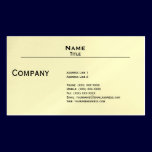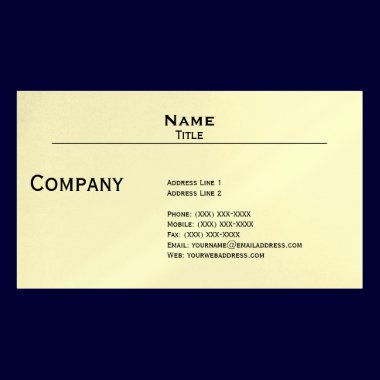Significance
- Business plans are almost universally used to secure funding for business ventures. For example, if you want your bank to give you a loan to open a restaurant in your town, you will need to present a business plan that outlines your expenses, goals, market analysis, target consumers and other information. Without such a document, very few investors or loan officers will consider your proposal. A business plan is also used to keep your business venture on track. You'll be less likely to make costly mistakes along the way.
Function
- A business plan serves to create a basic guidebook to your business. You will refer to it often as you make executive decisions and you will present it to investors. As your business grows, you might want to alter your business plan to suit new directions in merchandising or to make room for expansions. This document also serves as a quality-control outline. It will be easier to spot holes in your planning when everything is printed in black and white.
Time Frame
- Ideally, a business plan is created as soon as possible after an entrepreneur decides to open a business. It might change significantly during the planning stages as you and your partners make adjustments to the original concept, but the basic outline will stay the same. Entrepreneurs who wait too long to create a business plan lose valuable foresight.
As your business grows, continually evaluate your plan for new avenues of income and for new market trends, adjusting its focus as necessary. These documents are not set in stone and can be altered when it will benefit your venture. Also, keep in mind that it is never too late to write a business plan.
Features
- A business plan is comprised of eight basic parts. The title page should include the name of your business, your logo and a tagline. Next, the executive summary details the type of business, target consumers, financial needs and whether the business is a start-up or established venture. This is followed by a description of the business, a section devoted to marketing tactics, a market analysis and a summary of how the business hierarchy will be established. You will also include a detailed financial plan (including any funding needs) and an appendix for supporting documents.
Considerations
- All business plans are different because each business is unique. Try not to develop a cookie-cutter document that is identical to every other sample plan on the Internet, or you risk overlooking pertinent information. For example, a business owner who wishes to open a pawn shop will need to devote more space in the plan to loss prevention than the owner of a coffee shop because theft is a more serious issue. Consider the unique needs of your business before you decide the plan is complete.
Prevention/Solution
- Many entrepreneurs have a tendency to write their business plans like marketing materials. They spend far too much time trying to sell their business, when this type of document doesn't need sales language. It is true that you want investors and loan officers to consider putting money into your enterprise, but try to let the facts speak for themselves. Include solid math, market comparisons and research that support the viability of your business.
________________________







No comments:
Post a Comment